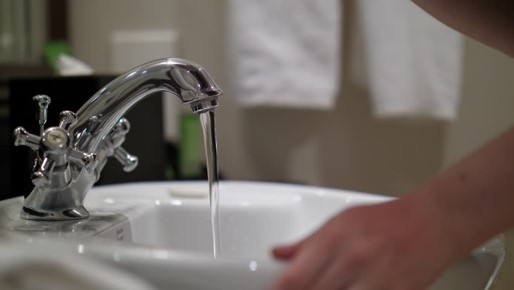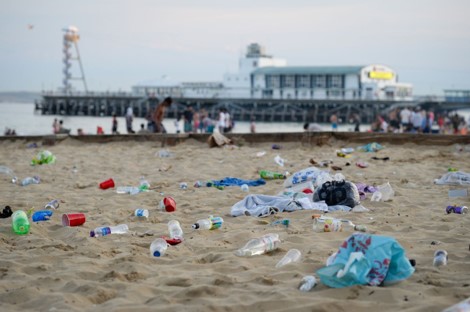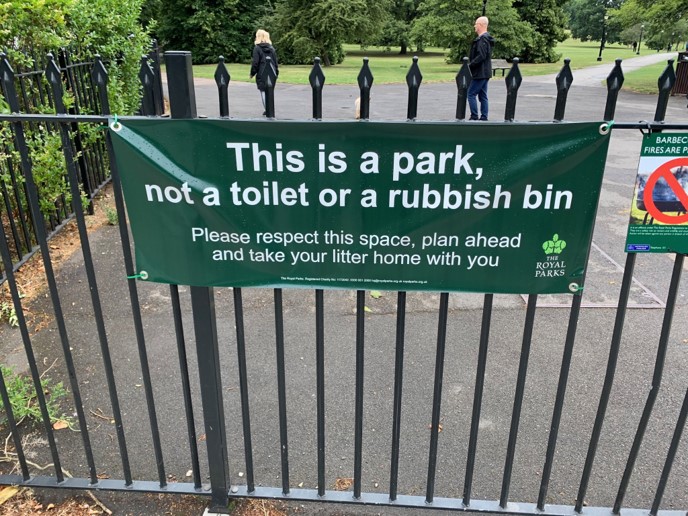
Have you ever found yourself brushing your teeth, looking at the tap you’ve left running while you brush? You know it’s wasting water, but you do it anyway.
Too long ago now I had the pleasure of working with one of the FMCG giants to try and understand why people sometimes did this. I sometimes wish the research had been published, because I thought it would help explain a lot more about society than how to sell more toothpaste.
I was reminded of the research again this week while looking at photographs of the 41 tonnes of litter collected off Bournemouth beach following the warmest day of the year so far.

Why would people suddenly not be taking their litter home? Looking at photos showing the high density of the non-social-distancing crowds from the day in question, my first thought was that it was because the situation was like Glastonbury festival, where, for the most part the crowds are too dense to even contemplate a walk to a bin. But, no. The crowds were dense (in more ways than one), but not dense enough to prevent movement.
More evidence that the answer had nothing to do with a very tangible ‘can’t move’ explanation came in the form of an even more depressing photo of the signs that the keepers at St James Park in London have felt the need to put up, also this week:

Never, the keepers have been declaring, have so many people left so much litter in the park before.
Again, the park had been busy, but not that busy.
Enter the running-tap explanation. The people that knowingly leave the tap running while they brush their teeth turned out to be people experiencing an absence of autonomy in their lives. Leaving the tap running, even though they knew it was wrong, was a way of demonstrating control. Breaking the rules – and getting away with it – is a way of telling ourselves that, for this minute at least, we are in charge.
Well, almost. The big difference between leaving the tap running and walking off the beach or out of the park without taking our litter with us is that no-one is likely to be watching us when we’re brushing our teeth, but, very likely, everyone is watching us when we walk off the beach leaving behind the remains of our picnic. Surely, in the watched scenario, we go against the next of our primary emotional drivers: the need to Belong.
We’re talking now, of course, about our ABC model – Autonomy, Belonging, Competence.
Under normal circumstances, litterers don’t belong to the tribe of civilised society. But the pandemic, and 13+ weeks of lockdown, has consciously and subconsciously told us these are not normal circumstances. Lockdown has removed our Autonomy, and then when we see several of the key Government figures that took it from us living by rules that are visibly different, we all now realise we Belong to the tribe of Screw-One-Rule-For-You-One-For-Me and, once that happens, anything goes. Collective littering is a quite literal demonstration of a public taking back control.
